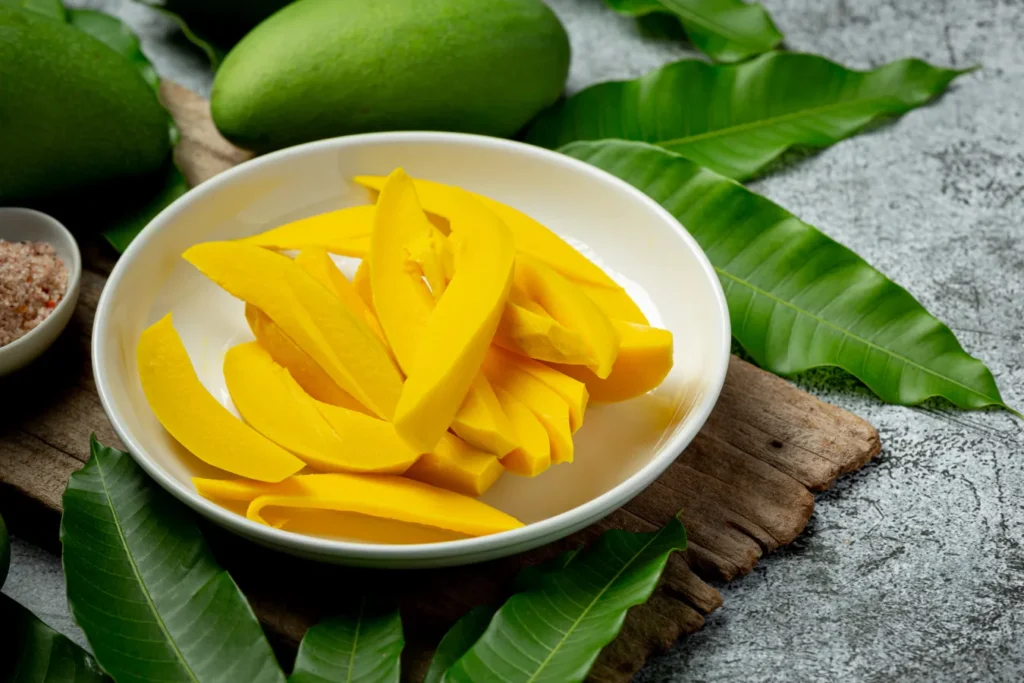The properties of mango leaves are used through infusion. They serve as an anti-inflammatory, to control diabetes and protect the nervous system.
Mango is one of the most popular fruits, as its sweet, slightly acidic taste and high water content help reduce the sensation of heat. Although it is a very popular fruit, some people do not know that its leaves also provide health benefits, thanks to their anti-inflammatory, antibacterial, and antioxidant properties.
The Mangifera indica tree, which belongs to the cashew and pistachio family, is the one that produces mango. Its origin is recorded in the northwest of India, where it has been cultivated for more than 4 thousand years. Due to the properties and flavor of the fruit, it has been planted in places in warm areas around the world and its production has expanded.
“Mango is distinguished from other fruits by the amount of antioxidants it contains, which makes it a food that helps prevent diseases because it stimulates the immune system, takes care of the skin and bones, and provides fiber,” says nutritionist Christa González.
This fruit, which stands out for its striking yellow color, has a high content of vitamins A and C, and to a lesser extent vitamin E. It also provides minerals such as magnesium and potassium, and purifying oils; as well as fiber, calcium, and folic acid.
These components make mango beneficial for the health of the nervous system, the digestive system, and the bone system. In addition, it allows the proper functioning of the metabolism, improves the immune system and intestinal transit, also prevents cancer, and promotes the proper functioning of the body.
Benefits of mango leaves
As mentioned above, mango provides several health benefits. However, even the leaves of this fruit can be used, as they are also edible and nutritious.
“The leaves of the Mangifera indica tree, which produces mango, are beneficial to health as they have antioxidant, anti-inflammatory, and antibacterial properties,” emphasizes Carolina Alvarez, an instructor in holistic medicine.
According to the specialist, mango leaves cannot be eaten as such, but rather consumed as hot infusions. “What is consumed is the tea or infusion, the water that these leaves give off. You cannot just pick them up, wash them, and chew them, as this could be toxic.”
The Manual of Medicinal Plants of the Guatemalan Highlands for Family Use indicates that the leaves of this tree are long, narrow, and aromatic. They contain active components such as essential oil, flavonoids, anthocyanins, saponins, methyl salicylate, and tannins.
The recommendation is to use 30 grams of mango leaves per liter of water and drink it throughout the day.
Although the stem, bark, roots, and fruit of this tree can also be used, the main benefits of mango leaves are:
- It protects the immune system, due to the concentration of plant compounds it contains, which helps counteract the negative effects of free radicals. Specifically, it serves to take care of the health of the eyes and the immune system.
- It is a complement to diabetes treatment, as it improves fat metabolism and controls blood glucose levels. It should not be taken alone, but rather as an accompaniment to diabetes treatment.
- It is anti-inflammatory. Its properties allow it to inhibit excess inflammation, and it also helps reduce the risk of heart and neurological problems. The anti-inflammatory effects are the main benefit of mango leaves.
- It is an ally in weight loss because it helps the metabolism burn fat. It should be accompanied by a balanced diet and constant exercise.
- Improves skin health, as it contains high levels of antioxidants that help prevent premature aging.

